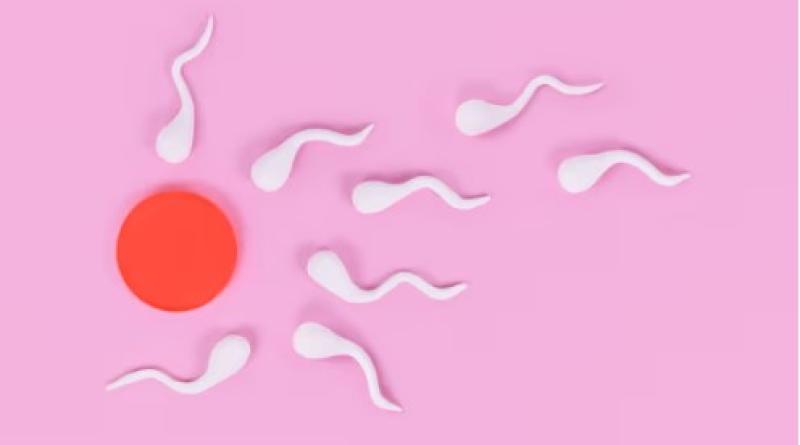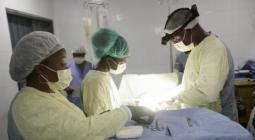Plastics, pesticides and pills: how chemical exposures affect sperm health

Sperm is on the decline. But why?
Poor diet, stress, excessive alcohol consumption, smoking and obesity are known factors impairing sperm health, but they don’t paint the entire picture. Recent research has illuminated the connection between certain chemical exposures and infertility, suggesting a broader, more complex array of factors influence our ability to have kids.
What are these chemical exposures, and what can be done to limit their impact on sperm health?
Exposure to plastics
Last year, a study led by Andreas Kortenkamp, a professor of human toxicology at Brunel University offered a first of its kind evaluation of the impact of chemicals found in everyday plastics on sperm concentration and count.
This research delved into the “chemical cocktail” present in plastics (which can contain over 13,000 different chemicals, the health implications of many of which remain unexamined) emerging with a ranking of known top offenders: bisphenol A and its substitutes, which are found in many types of plastic food containers and in the linings of cans; phthalates, another additive, and polychlorinated dioxins, a type of “forever chemical” produced by burning plastic.
Researchers determined that common products and environmental contamination expose humans to these chemicals at levels up to 100 times higher than what is deemed safe, putting us at risk of endocrine disruption and related issues with reproductive health, metabolism and immune function.
These findings, published in the journal Environment International, have implications for those who are pregnant, as critical stages of reproductive development happen during pregnancy.
What can we do about it? It is possible to reduce exposure to these chemicals by avoiding plastic consumer items, particularly food packaged in plastic and plastic-based clothing, as research has shown that chemicals can leach into food products and be absorbed through our skin.
But Kortenkamp is reluctant to pin responsibility to avoid these chemicals on individuals. “The problem is that the pollution with these chemicals is so widespread that it’s virtually impossible by individual avoidance to reduce your exposure,” he says, pointing out that BPA, which disrupts the endocrine system because it mimics the sex hormone estrogen, is present in everyday food items like commercial dairy products.
“Regulatory action is required” to stem BPA at the source, says Kortenkamp. To that end, the European Food Safety Authority has recommended a 20,000-fold reduction in the “safe” level of BPA in the European Union. In the US, a coalition of environmental and public health groups is petitioning the US Food and Drug Administration (FDA) to tighten limits for bisphenol A and its substitutes in plastics that contact food.
However, the chemical industry and other manufacturers, supported by the FDA, maintain that current BPA regulations are adequate, and that the likelihood of BPA causing health issues is minimal.
Individuals can file a “Citizen Petition” to the FDA asking them to tighten BPA regulations, but these can go unanswered for years. A more immediate route is to reach out to political representatives, as Congress has oversight authority over regulatory agencies such as the FDA. Citizens can maintain pressure on their representatives to create change, as well as petition online to spread information on the dangers associated with bisphenols and other harmful chemicals carried by plastics.
Exposure to acetaminophen
Acetaminophen, also known as paracetamol in Europe, and commonly sold under the brand names Tylenol and Panadol, is widely considered the safest painkiller to take during pregnancy; the drug is so commonplace that many “don’t even think of it as a medicine”, says Kortenkamp.
But Kortenkamp’s research assessed five separate studies, all of which found “a higher chance of a baby boy being born with non-descending testes,” a predictor for poor semen quality, if the pregnant person took acetaminophen at the end of the first trimester and the beginning of the second trimester.
What can we do about it? Kortenkamp says the timing is important; the observed effects don’t occur “if expectant mothers take paracetamol very early in pregnancy, nor does it happen later in pregnancy”.
Exposure to pesticides
A paper published by George Mason University (GMU) researchers this November analyzed five decades of peer-reviewed studies to definitively conclude that exposure to organophosphates and carbamate-based pesticides correlates with decreased sperm concentration across varying contexts and circumstances.
We now know beyond a doubt that the associations between pesticide exposure and sperm health are “enduring and strong”, says Dr Melissa Perry, dean of the college of public health at GMU.
Aside from occupational exposure – situations in which a person would be working directly with pesticides – food is the main way we are exposed to these chemicals, says Perry.
What can we do about it? Since 1995, the Environmental Protection Agency has offered an annually updated shoppers’ guide to avoiding the “dirty dozen”; produce items such as strawberries, spinach, pears and kale that test highly for pesticide residues and should be cleaned thoroughly with baking soda and running water, blanched or, when possible, peeled to reduce contaminants.
Because pesticides bioaccumulate, or build up through the food chain, animal products also contain them in high levels; in fact, research has found those who consume meat and eggs take in more pesticides than vegetarians, making vegetarianism or veganism good dietary options for those seeking to limit their exposure to chemicals that are, after all, “intentionally manufactured to kill things”, as Perry puts it.
Environmental exposures from pesticides being applied on golf greens, school fields, around public buildings and even on our own lawns also pose a considerable, cumulative risk to sperm health, says Perry.
As with the chemicals in plastic, it’s hard to completely avoid these toxins on an individual level.
Perry hopes the robust evidence of GMU’s study will help galvanize policymakers to create legislative change around the public issue of declining reproductive health. Additionally, it could get people talking, and dispel the stigma that can make this health crisis feel like a personal failing for individuals struggling with infertility, when in fact, societal-level intervention is critically important to protect us all from harmful chemicals.






